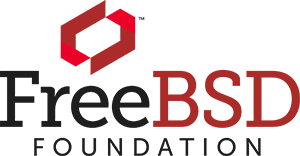The FreeBSD Foundation is soliciting the submission of proposals for work relating to any of the major subsystems or infrastructure within the FreeBSD operating system. Proposals will be evaluated based on desirability, technical merit, and cost-effectiveness. Download the PDF of the complete Guidelines if you are interested in a submission.
Proposals must include the following:
- A detailed description of what is being proposed, how it will benefit the FreeBSD project, and why the work is needed. Also include your name, email address, mailing address, phone number, and involvement in the FreeBSD Project.
- You need to include a timeline and costing for the project. This includes your fees, compensation for reviewer, and taxes. We would also like you to include a rough estimated breakdown of how the money will be spent. Also include the estimated man hours.
- Technical reviewers are very important to the project. It lends to accountability on the project. The Foundation does not have the staffing resources to provide detailed source code review, but feels that detailed technical review of funded projects as they proceed is extremely important. The reviewer may request to be compensated for their time they spend on the project. It is important that the reviewer is familiar with what you plan to accomplish. The person should be a recognized FreeBSD contributor. Include in your proposal the name of the reviewer and what criteria you used to select this person. Please include this cost in your final project cost.
- Proposals must include milestones for which partial payments can be made. In addition to the milestones, a completion target date must be proposed with the completed project placed into the FreeBSD source repository. A proposal will be rejected if a target completion date is not submitted. Payments will only be made when milestones are reached and the project has been completed.
All proposals must be in US dollars.
Proposals are open to all developers, including non-FreeBSD committers, but developers without access to commit to the source tree must provide details about how the completion guidelines will achieved.
Please email your proposal to the FreeBSD Foundation Board.

